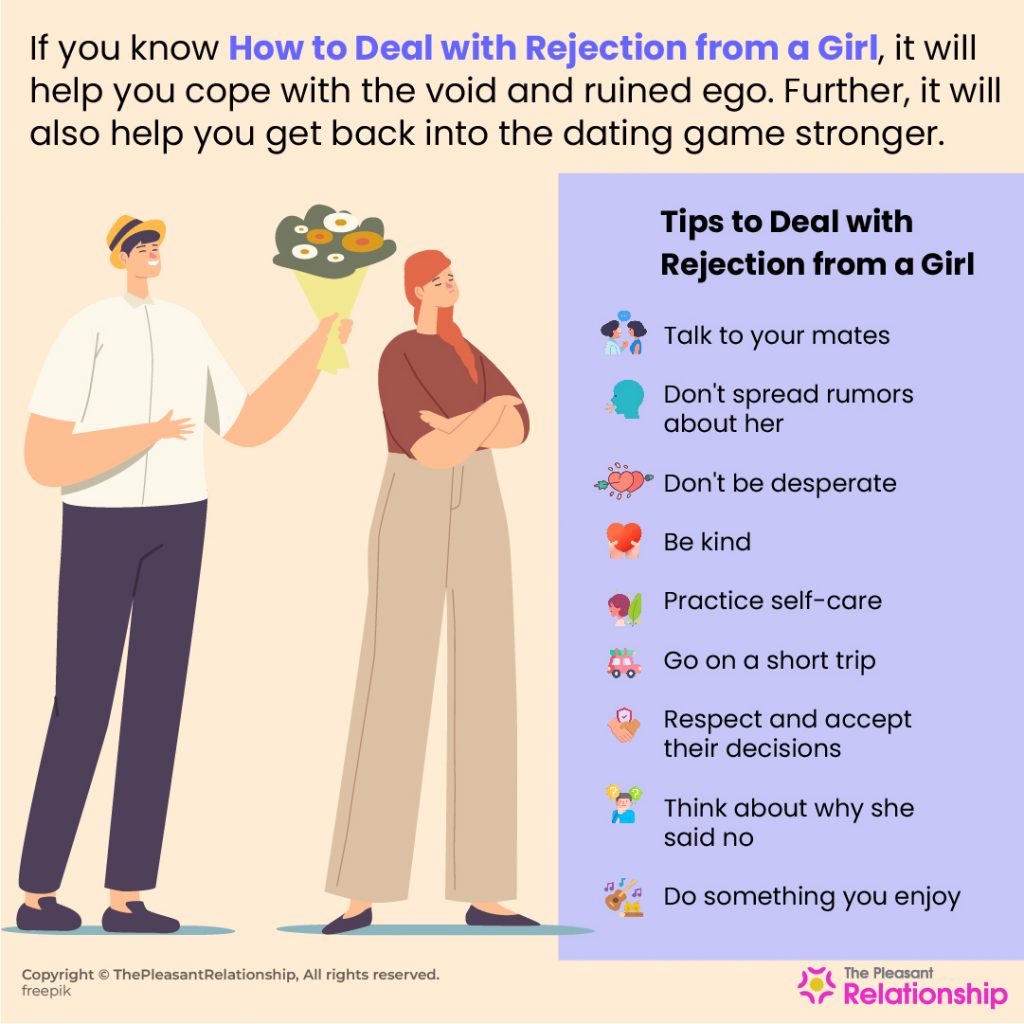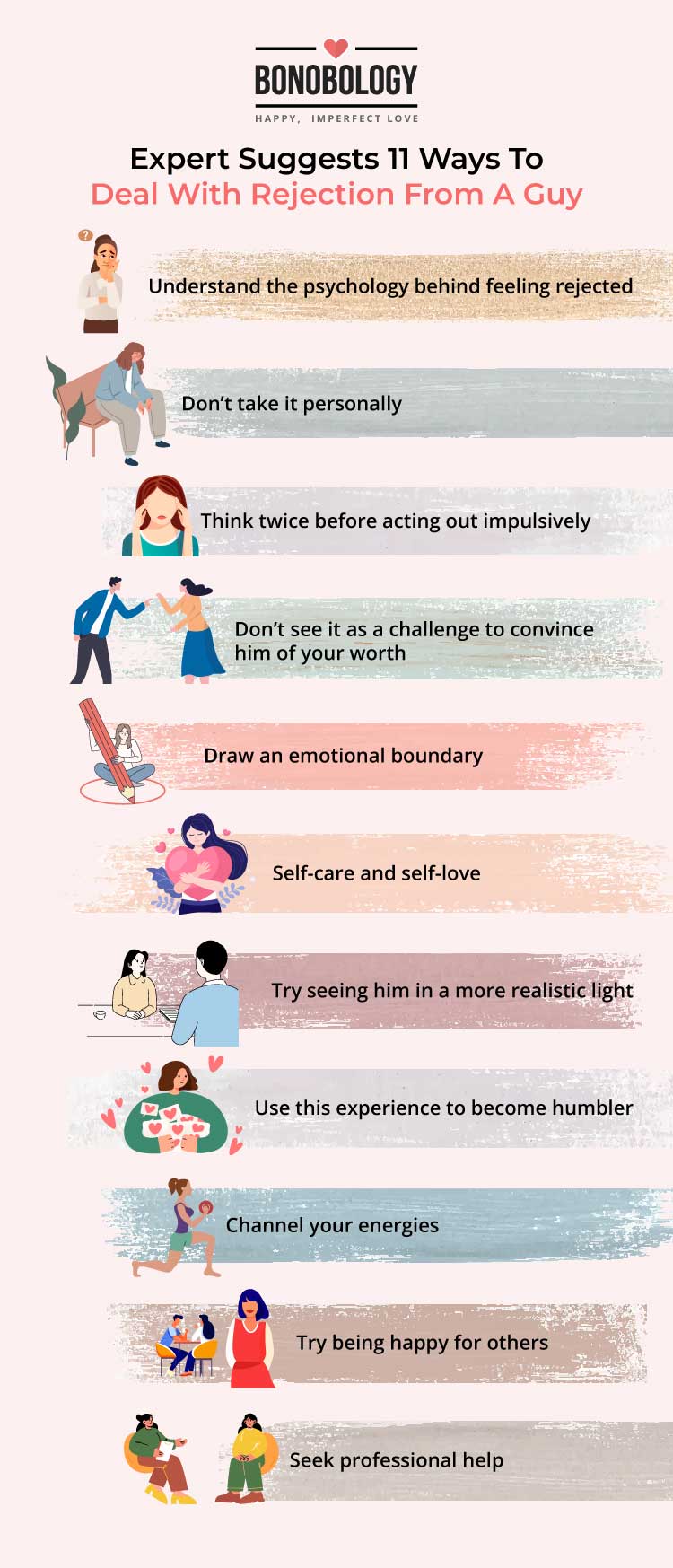
Understanding Rejection in Dating
Definition of Rejection in Dating
Rejection in dating can feel like a punch to the gut, but it’s a common occurrence that everyone encounters at some point. Simply put, dating rejection occurs when one person expresses romantic interest, but the other person does not reciprocate those feelings. This can happen in various forms—ghosting, being told directly, or even non-verbal cues that indicate a lack of interest.
For instance, imagine you’re having a lovely dinner date, and halfway through the meal, you sense the other person is distracted and disengaged. This feeling can lead to an uncomfortable realization: perhaps they aren’t as interested in you as you are in them. Even the most confident individuals can feel vulnerable during such moments, which illustrates the complex emotions tied to dating rejection.
Common Reasons for Rejection
Understanding why rejection occurs can help soften the blow. Here are several common reasons that may explain why someone might not be interested:
- Lack of Chemistry: Sometimes, despite having much in common, the spark simply isn’t there.
- Different Goals: One person may be looking for a serious relationship, while the other may want to keep things casual.
- Personal Issues: Factors like anxiety, baggage from past relationships, or even their current life circumstances can play a role.
- Mismatch in Values: Deep-rooted beliefs and values can influence compatibility, and differing perspectives might lead to rejection.
These reasons are rarely about personal shortcomings and often reflect broader compatibility issues. Recognizing this can provide context and help individuals navigate their emotions more effectively.

Coping Mechanisms for Handling Rejection
Recognizing and Accepting Rejection
After experiencing rejection, it’s essential to take a step back and fully recognize and accept what has happened. This is not just about recognizing the “no” but also understanding that rejection is a part of life, especially in the dating realm. Accepting rejection can be challenging; however, it allows for personal growth and opportunities to move forward.
Consider this: when a friend gets turned down for a promotion at work, they often reflect on it, learn from the experience, and look for new opportunities. A similar approach can be applied to dating. Here’s a simple way to facilitate acceptance:
- Acknowledge Your Feelings: It’s okay to feel sad or disappointed. Give yourself permission to grieve the potential relationship.
- Reflect on the Situation: Ask yourself what you learned from the experience. Were there signs you overlooked?
- Let Go of Self-Blame: Remember, rejection doesn’t define your worth. It’s simply a mismatch.
Building Resilience and Self-Confidence
Once acceptance sinks in, the next step is to build resilience and self-confidence. This is where the magic happens! Resilience can be strengthened like a muscle; the more you practice, the stronger you become.
Here are a few strategies to boost self-confidence after rejection:
- Focus on Your Strengths: Make a list of your positive traits and accomplishments. This serves as a reminder of what makes you unique.
- Stay Active: Engage in activities you enjoy. Whether it’s hiking, painting, or even trying out new recipes, keeping busy can uplift your spirits.
- Set Small Goals: Achieving small personal goals can gradually restore your sense of self-worth.
For instance, if you were hoping to connect with someone at a recent event, aim to attend two more gatherings in the next month. Embracing new experiences and challenges fosters confidence, helping individuals bounce back stronger than before.

Positive Approaches to Deal with Rejection
Learning from Rejection
Once the initial sting of rejection begins to fade, it opens up a valuable opportunity for personal growth. Learning from rejection can transform a seemingly negative experience into a stepping stone towards improvement. Reflecting on what happened can reveal important insights that may enhance future dating experiences.
Consider a time when a friend was rejected after a date. Instead of wallowing in sorrow, they took time to think about the interaction. Questions like, “What went well?” and “What could I have done differently?” can guide this reflection. Here are some key aspects to keep in mind when learning from rejection:
- Identify Patterns: Notice if there are recurring themes in the rejections you face. Are there specific types of individuals or circumstances that seem to lead to negative outcomes?
- Seek Constructive Feedback: Sometimes, a trusted friend can offer helpful insights or perspectives you may not have considered.
- Adjust Your Approach: If certain conversation starters or behaviors haven’t worked, try switching things up the next time.
Maintaining a Positive Mindset
While it’s easy to spiral into negativity after rejection, maintaining a positive mindset is crucial for resilience. A positive outlook helps to shift focus from loss to new possibilities and experiences.
Some tips to cultivate positivity include:
- Practice Gratitude: Write down three things you’re grateful for each day. This practice can enhance your mood and shift your focus away from rejection.
- Surround Yourself with Positivity: Spend time with uplifting friends and family who encourage you and provide support.
- Use Affirmations: Positive affirmations reinforce self-worth. Phrases like “I am worthy of love” or “Every rejection brings me closer to the right match” can be powerful.
By employing these strategies, individuals can navigate the emotional landscape of rejection with grace, transforming setbacks into opportunities for growth and positivity.

Seeking Support and Moving Forward
Talking to Friends and Loved Ones
After experiencing rejection, it’s crucial to seek support from friends and loved ones. Having a solid support system can significantly ease the emotional burden and provide a safe space to share feelings. When sharing your experience, honesty is key. Connect with someone who you trust and feel comfortable opening up to.
Picture this: after a tough breakup, someone might sit down with their best friend over coffee to vent about their feelings. This conversation can lead to not just comfort, but valuable insights as well. Here are a few ways to effectively talk about rejection:
- Be Honest About Your Emotions: Share what you’re feeling—whether it’s anger, sadness, or confusion. Getting it off your chest can be incredibly cathartic.
- Ask for Perspectives: Sometimes friends can offer valuable advice or new viewpoints that you might not have considered.
- Plan Fun Activities Together: Engaging in enjoyable activities can serve as a welcome distraction and help lift your spirits.
Setting Personal Goals and Moving On
While seeking support is important, so is taking proactive steps to move forward. Setting personal goals can provide direction and motivation in the aftermath of rejection. Goals help shift focus from what has been lost to what can be achieved.
Consider the following approaches to goal-setting:
- Short-Term Objectives: Start small. This could be as simple as enrolling in a new class or taking up a hobby you’ve always wanted to try. It reinforces a sense of accomplishment and self-discovery.
- Long-Term Aspirations: Think about what you want in a future relationship or your life in general. This could be related to career ambitions or personal development goals.
- Celebrate Progress: Document your journey, and celebrate even the smallest milestones. Recognizing progress fosters positivity and encourages you to keep moving forward.
By seeking support and setting constructive goals, individuals can navigate rejection more effectively, allowing for personal growth while embracing new opportunities ahead.
